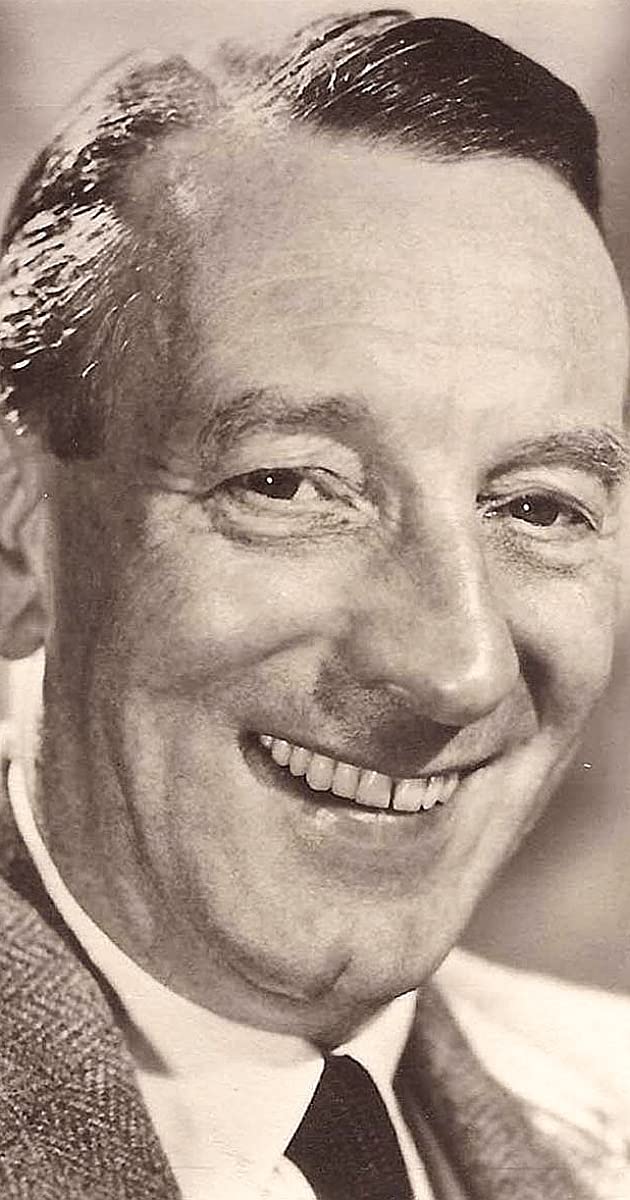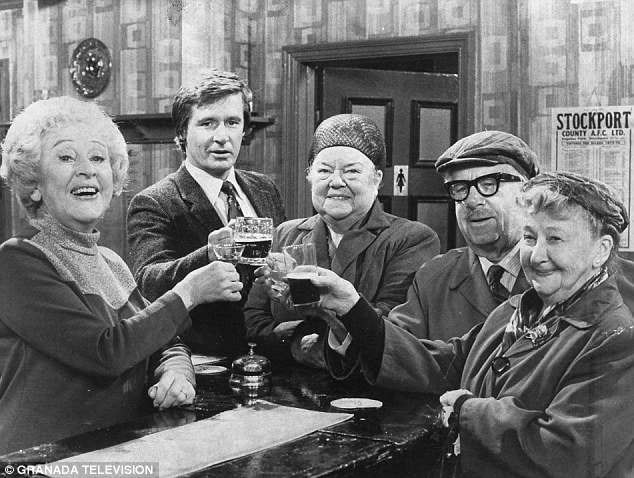|
Have a Go Joe, 1949 Bill Cooper July 2020 On the subject of celebrity appearances treading the boards at the Box Bingham Hall, there is of course Wilfred Pickles. Who exactly was he? Throughout the Second World War, there were fears of false information and alarm being spread far and wide. The Germans had found a way of breaking into news broadcasts and a guy called William Joyce interrupted the programmes with his phrase Germany Calling! and launching forth into all sorts of pro-Nazi misinformation. The newspapers quickly named him Lord Haw-Haw and he became a bit of a joke. The government deemed that the false information needed countering to maintain public morale but how was difficult. The BBC had always insisted on very correct English, received pronunciation imitating official BBC London-speak. Their first departure from this was when they permitted newsreaders to give their names (men only), then regional accents began to be heard but only a light Scottish brogue or a lovely Welsh lilt. It was all intended to stop impersonation, so that listeners would recognise the name and voice. Then came a seemingly trump card, an enormous step for the BBC at that time, when they introduced strong regional accents but always grammatically correct. |
Wilfred Pickles, a staunch Yorkshire man, was one of the presenters who had a strong regional accent. Eventually, a way of totally jamming the interruptions of Lord Haw-Haw was found but the regional accents continued. That’s how Wilfred Pickles began and after the war he followed this with his Quiz Programme on the BBC Home Service, called Have a Go.
Have a Go Quiz
The show’s concept was to visit ordinary people in their local church or village hall. It sought to capture people’s nostalgic memories of their childhood and youth and was transmitted live. After that, contestants would answer quiz questions to win incremental sums of money rising from 2s.6d to £1.1s, making a grand total of £1.18s.6d (in decimal currency £1.92). There was also the chance to take home local produce which would be shown on a table in front of them – hence the phrase What’s on the table, Mabel?
The show was deliberately inclusive of all generations and set out its Northern working-class origins from its opening tune which always began with everyone singing Have a go Joe. Come on and have a go. You can’t lose owt. It costs you nowt, to make yourself some dough. So, hurry up and join us. Don’t be shy or don’t be slow. Have a go, have a go! I can still play the tune on my keyboard.
Nowadays we might laugh at some of the supposedly intimate questions like Are yer courtin’? and Any embarrassing moments? and a quick-fire round when you weren’t allowed to answer yes or no whilst Wilfred tried to trick contestants with the speed of his questions. But the show was hugely popular at the time attracting a family following with Wilfred’s wife Mabel assisting him and a pianist Violet Carson adding to the atmosphere with accompanying interludes and quiz tunes. Everyone won the money whether they knew the answer or not. Amazingly, it ran for nearly 20 years on the BBC Home Service with audiences reputed to be 20 million listeners at times.
It was a significant event when the show visited the Box Bingham Hall on 22 September 1949. Various Box clubs had a ticket allocation and each club held a draw, but I failed to win one and had to gate-crash. The hall was packed out, everyone was seated and a few standing to watch. Suddenly Violet Carson was announced. She was a gifted pianist and had earned a reputation for singing and dancing, having started by accompanying early silent films. For me she stole the show that evening. There were other artists from the Opportunity Knocks programme and then on came Wilfred Pickles. He always began with the same sort of patter: Ladies and Gentlemen of Box....How do! How are yer? On came the contestants. I can only recall two, the first was a gentleman called Darcy Beer from Colerne and later a young girl from Boxfields called Shirley Watts. There was another chap from Moor Green but I can’t remember his name. Other than those, none of the other contestants were from the Box area. As you can imagine, later there was much muttering on the grapevine about this. My school friends in Bath thought I was lucky to live in a place that such an important show had visited and many used to often come by bike to see me after that.
In 1954 I had left Box and was serving in the British Army of the Rhine at a place called Bad Oeynhausen and the Show came there. I went with a friend to hear it and, with a fabulous warm-up from Violet: Ladies and Gentlemen of Bad Oeynhausen How do! How are you? Exactly the same format as previously. Violet Carson had started her career singing on Children’s Hour and after the war presenting Women’s Hour on the radio. Later on, Violet Carson became famous on television as an actress, the one and only battle-axe Ena Sharples in Coronation Street soap opera in which she and her obligatory hairnet starred for 20 years. She certainly bridged the gap from old fashioned radio to TV but, again, who was she and how significant was she as a celebrity? The question I raise is: Was Violet Caron the most famous entertainer to grace the Bingham Hall boards?
Have a Go Quiz
The show’s concept was to visit ordinary people in their local church or village hall. It sought to capture people’s nostalgic memories of their childhood and youth and was transmitted live. After that, contestants would answer quiz questions to win incremental sums of money rising from 2s.6d to £1.1s, making a grand total of £1.18s.6d (in decimal currency £1.92). There was also the chance to take home local produce which would be shown on a table in front of them – hence the phrase What’s on the table, Mabel?
The show was deliberately inclusive of all generations and set out its Northern working-class origins from its opening tune which always began with everyone singing Have a go Joe. Come on and have a go. You can’t lose owt. It costs you nowt, to make yourself some dough. So, hurry up and join us. Don’t be shy or don’t be slow. Have a go, have a go! I can still play the tune on my keyboard.
Nowadays we might laugh at some of the supposedly intimate questions like Are yer courtin’? and Any embarrassing moments? and a quick-fire round when you weren’t allowed to answer yes or no whilst Wilfred tried to trick contestants with the speed of his questions. But the show was hugely popular at the time attracting a family following with Wilfred’s wife Mabel assisting him and a pianist Violet Carson adding to the atmosphere with accompanying interludes and quiz tunes. Everyone won the money whether they knew the answer or not. Amazingly, it ran for nearly 20 years on the BBC Home Service with audiences reputed to be 20 million listeners at times.
It was a significant event when the show visited the Box Bingham Hall on 22 September 1949. Various Box clubs had a ticket allocation and each club held a draw, but I failed to win one and had to gate-crash. The hall was packed out, everyone was seated and a few standing to watch. Suddenly Violet Carson was announced. She was a gifted pianist and had earned a reputation for singing and dancing, having started by accompanying early silent films. For me she stole the show that evening. There were other artists from the Opportunity Knocks programme and then on came Wilfred Pickles. He always began with the same sort of patter: Ladies and Gentlemen of Box....How do! How are yer? On came the contestants. I can only recall two, the first was a gentleman called Darcy Beer from Colerne and later a young girl from Boxfields called Shirley Watts. There was another chap from Moor Green but I can’t remember his name. Other than those, none of the other contestants were from the Box area. As you can imagine, later there was much muttering on the grapevine about this. My school friends in Bath thought I was lucky to live in a place that such an important show had visited and many used to often come by bike to see me after that.
In 1954 I had left Box and was serving in the British Army of the Rhine at a place called Bad Oeynhausen and the Show came there. I went with a friend to hear it and, with a fabulous warm-up from Violet: Ladies and Gentlemen of Bad Oeynhausen How do! How are you? Exactly the same format as previously. Violet Carson had started her career singing on Children’s Hour and after the war presenting Women’s Hour on the radio. Later on, Violet Carson became famous on television as an actress, the one and only battle-axe Ena Sharples in Coronation Street soap opera in which she and her obligatory hairnet starred for 20 years. She certainly bridged the gap from old fashioned radio to TV but, again, who was she and how significant was she as a celebrity? The question I raise is: Was Violet Caron the most famous entertainer to grace the Bingham Hall boards?
What do readers think? Any more famous visitors to Box than Violet Carson, star of stage, silent movies and television, who revolutionised British drama with her down-to-earth starring role in Coronation Street. I have tried to find the copyright holders of these photos but unsuccessfully. If I have offended any copyright holder, please let the website know and we will remedy the situation. Editor

